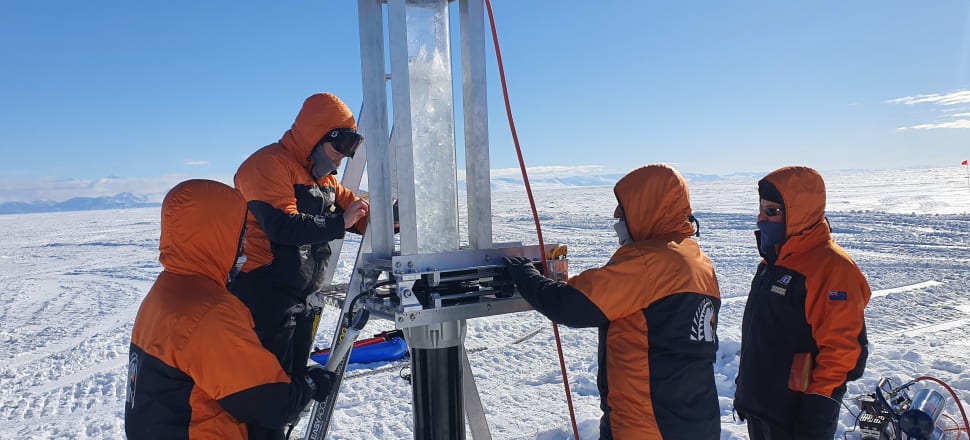
Every weekday, The Detail makes sense of the big news stories.
This week, we looked at the warnings being sounded over vanishing sea ice in Antarctica, the reasons why so many building and construction firms are going bust, the regulatory gaps that mean scams can fall through the cracks, and the concept of story sovereignty.
Whakarongo mai to any episodes you might have missed.
Why is Antarctic sea ice vanishing?
There's always plenty of uncertainty when it comes to planning expeditions in Antarctica's McMurdo Sound, but prior to the most recent summer season, researchers encountered a problem they hadn't experienced before - the prospect of no sea ice to camp on.
Scientists are looking at what was behind the drastic changes in the extent of sea ice, and what it might mean for Antarctica's biodiversity and - more broadly - climate change.
"We have an opportunity as a society to make things better than they would otherwise be," Niwa oceanographer Natalie Robinson tells The Detail.
"The window for that opportunity is closing because there are thresholds that are going to be met and we cannot reverse them."
Building and construction companies are now being liquidated at twice the rate of food and hospitality businesses - and it's small firms suffering the most stress.

The Herald's property editor Anne Gibson explains why.
"They're the ones that were struggling anyway, and often pre-Covid," she tells The Detail.
"It's a really bad time for the sector when you have a boom. One of the leading builders once said to me, this is the most dangerous time. Because the prices are changing so fast, there's a whole lot of pressure, we've still got so much of an overlap from Covid...there's high inflation in the economy and building sector inflation will be running at probably almost double national inflation, we've got that labour shortage...and a very lumpy sector that tends to go boom/bust every few years."
Scams falling through the regulatory cracks
As scams become increasingly elaborate, there are concerns about the slow pace of action from authorities - especially when scammers are targeting vulnerable communities.
National Business Review journalists Nicholas Pointon and Maria Slade talk to The Detail about their recent investigations into scams, and their thoughts on the response of the regulators whose job it is to take action against scammers.
They ask if it's time for New Zealand to go down a similar path to Australia, which is setting up a national anti-scams centre.
Owning the story from start to finish
Three storytellers from different backgrounds talk to The Detail about story sovereignty - what it means to them and how it affects their work.

Story sovereignty means telling a story on your own terms, without outside influence. The concept has gained momentum in the Māori and Pasifika worlds, as writers and filmmakers look to step outside the realm of Pākehā publishers.
The LGBTQI+ community, and others, are also embracing it.
For non-binary, queer photojournalist Becki Moss, the mainstream media coverage of the Posie Parker rally raised questions "about whose lens we document history".
"There was definitely a lacking presence of diversity of who was actually capturing that moment."
Check out how to listen to and follow The Detail here.
You can also stay up-to-date by liking us on Facebook or following us on Twitter.








